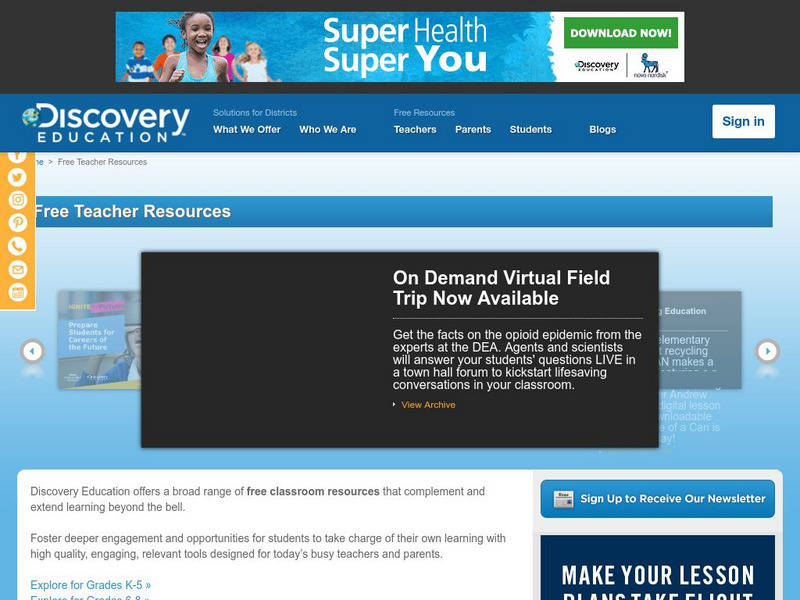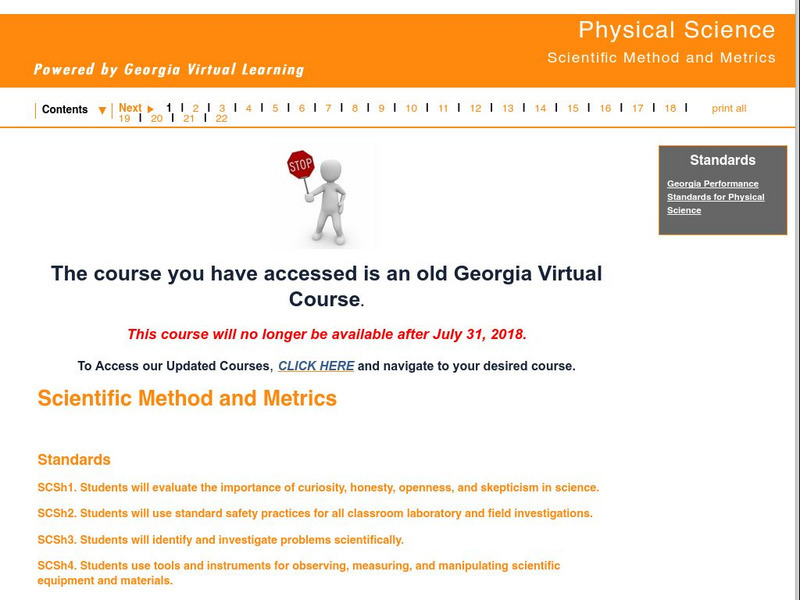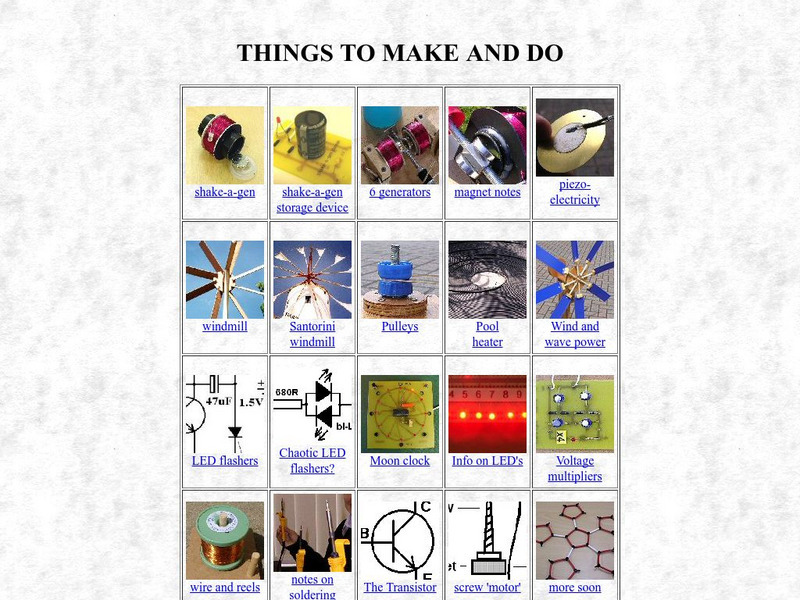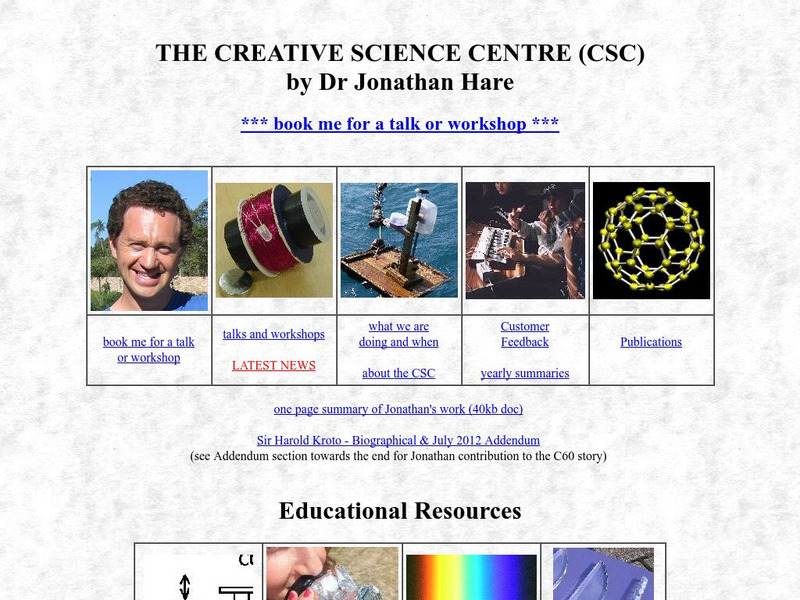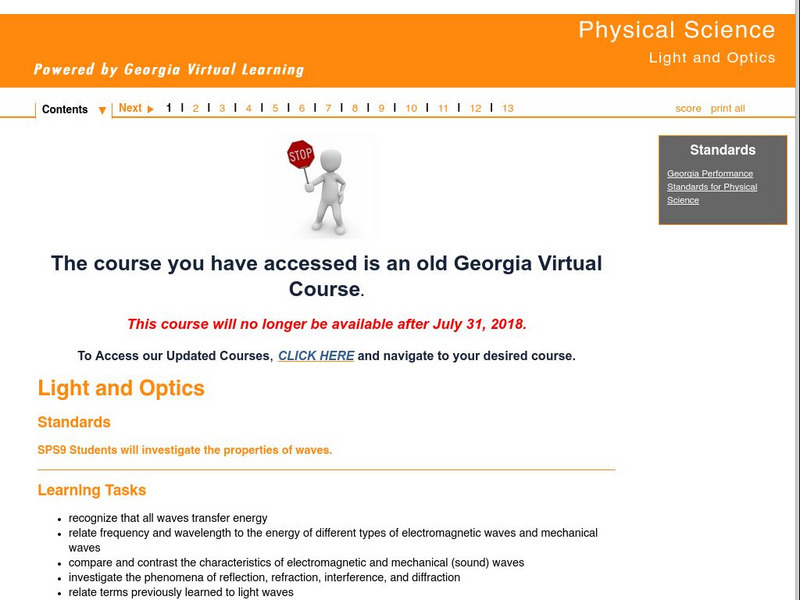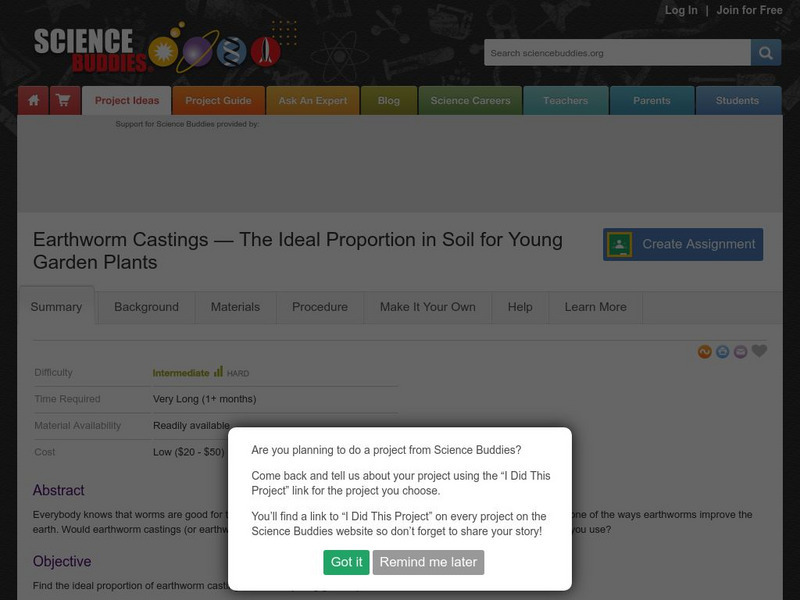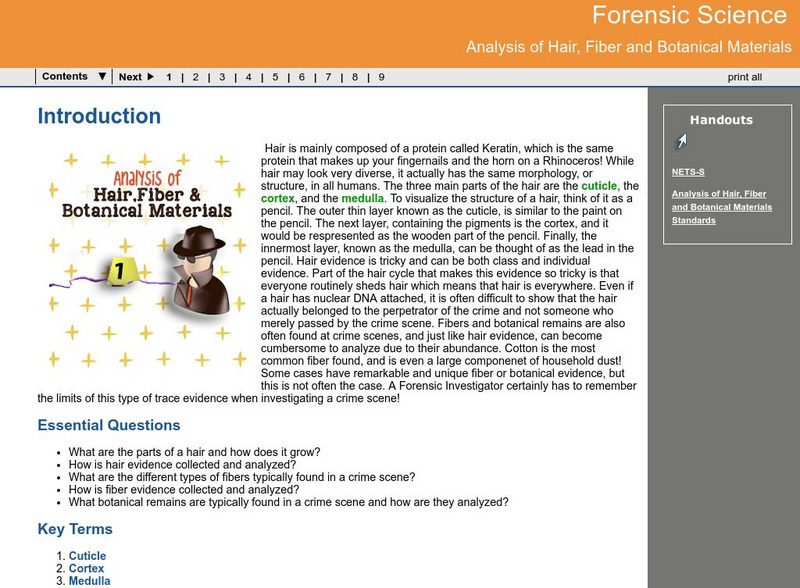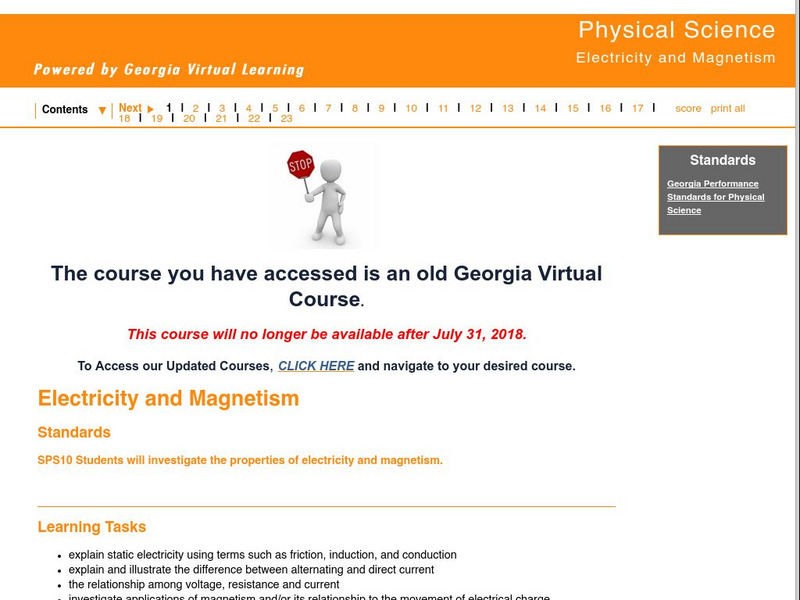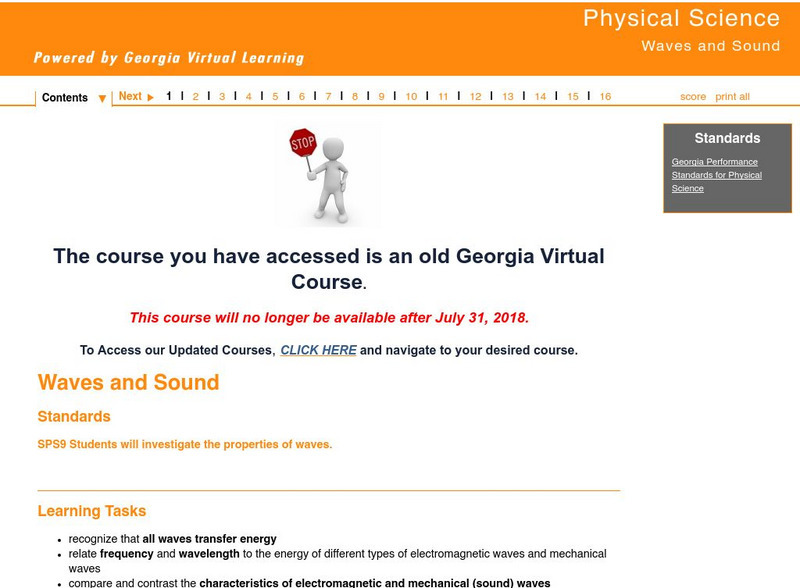Texas Education Agency
Texas Gateway: Types of Science Investigations
This tutorial will describe the three types of scientific investigations: descriptive, comparative, and experimental.
Georgia Department of Education
Ga Virtual Learning: Crime Science Investigation
In this comprehensive interactive tutorial you will learn the basic components of a crime scene investigation and how they are implemented. You will also learn various evidence collecting techniques, as well as how to properly document...
Discovery Education
Discovery Education: Science Fair Central: Choose a Science Fair Project Idea
Great science fair project ideas! Learn how to ask a testable question and choose from elementary, middle school, or high school science fair project ideas. View examples of testable questions, and see what is changed, what stays the...
Discovery Education
Discovery Education: Science Fair Central: Invention Project Samples
Discover how to present your findings after completing a science fair project. View sample science fair invention projects: junior light switcher, quiet down invention, and stale sandwiches.
Georgia Department of Education
Ga Virtual Learning: Physical Science: Scientific Method and Metrics
Students have the opportunity to review the scientific method, become familiar with vocabulary terms associated with scientific investigation, and learn about real-world scientific examples where the method is used.
Discovery Education
Discovery Education: Science Fair Central: Investigation Project Samples
Explore three science fair project samples about birds, stain removal, and keeping it cool. See how the report is written after the investigation is complete.
National Institutes of Health
Nih: Science Iq: Cells
Test knowledge of cell biology with three tiers of quizzes starting with high school level and earning up to a graduate degree in understanding this science. Investigate deeper into each question with clicks on the additional tabs.
Creative Science Centre
Creative Science Center: Things to Make and Do
Have you ever wanted to create your own science investigation? Try these creative science projects, and be inspired to design your own.
ClassFlow
Class Flow: Science Investigation Sheet
[Free Registration/Login Required] Submitted by Hereford LEA. - A graphic organizer for science students.
ClassFlow
Class Flow: Science Investigation Sheet
[Free Registration/Login Required] This flipchart gives a guideline for planning and conducting science experiments. It gives an organized approach to planning, obtaining evidence, presenting and evaluating the results.
Creative Science Centre
Creative Science Centre
This comprehensive resource has a collection of creative science ideas and challenges. The goal is to guide teachers and students toward developing more creative science projects.
Georgia Department of Education
Ga Virtual Learning: Physical Science: Light and Optics
Students will investigate the properties of light waves. They will learn about the different types of electromagnetic waves and mechanical waves, and investigate the phenomena of reflection, refraction, interference, and diffraction.
Texas Education Agency
Texas Gateway: Scientific Investigation and Reasoning: Models
This tutorial explores why the use of models in science is important for research and explanation of the natural world.
Science Buddies
Science Buddies: Earthworm Castings: Soil for Young Garden Plants
Everybody knows that worms are good for the soil, but not everybody knows why. Here's a project that investigates just one of the ways earthworms improve the earth.
Georgia Department of Education
Ga Virtual Learning: Forensic Science: Analysis of Hair, Fiber and Botanical Mtl
This comprehensive interactive tutorial explores forensic science, particularly within the area of hair analysis. Investigate the parts of a hair and how it grows. Learn how is hair evidence is collected and analyzed and what different...
Other
Discover Primary Science: Design and Make a Foam Rocket
Students are introduced to science in an interactive and fun way. Learners investigate how to make a rocket with this innovative activity. The resource includes a tutorial, an activity sheet, and web links.
PBS
Pbs: Earth Science Exploration
An earth science collection where students can explore earthquakes, volcanoes, and more natural phenomena. The collection uses videos and interactive activities to investigate our dynamic planet and earth systems.
Georgia Department of Education
Ga Virtual Learning: Physical Science: Electricity and Magnetism
Students learn about static electricity using terms such as friction, induction, and conduction. They also explain and illustrate the difference between alternating and direct current, and understand the relationship among voltage,...
Georgia Department of Education
Ga Virtual Learning: Physical Science: Matter and the Atom
Students investigate the structure and parts of the atom, and learn about atomic mass and atomic number. They also explore the differences among solids, liquids, gases, and plasma.
Georgia Department of Education
Ga Virtual Learning: Physical Science: Solutions Chemistry
Through interactive puzzles, informational text and video clips, students will investigate the properties of solutions.
Georgia Department of Education
Ga Virtual Learning: Physical Science: Waves and Sound
In this module, students investigate the properties and behavior of different types of waves.
Georgia Department of Education
Ga Virtual Learning: Ap Environmental Science: Toxicology and Human Health
Students investigate hazards to human health that are found where we live, work, and play, and begin to understand the risk analysis and system of evaluation that was developed to protect us from potential environmental dangers.
University of California
University of California Museum of Paleontology: Science Checklist [Pdf]
Use this seven item checklist to make sure all the parts of a good science investigation are in place.
Science Education Resource Center at Carleton College
Serc: Investigating Motion: What Causes Objects to Move?
Young scholars will have an opportunity to determine what makes everyday objects move. Students will be given objects and asked to make predictions on how far each object will move after they blow on it. Then they will measure the...


